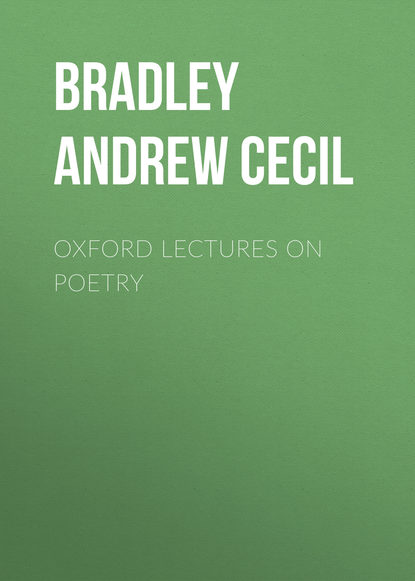По всем вопросам обращайтесь на: info@litportal.ru
(©) 2003-2024.
✖
Oxford Lectures on Poetry
Настройки чтения
Размер шрифта
Высота строк
Поля
192
I do not refer to such deliberate and sustained effort as a reader may sometimes make. It is not commonly realised that continuous attention to any imaginative or intellectual matter, however enjoyable, involves considerable strain. If at a lecture or sermon a careless person makes himself observable in arriving late or leaving early, the eyes of half the audience will turn to him and follow him. And the reason is not always that the speaker bores them; it is that involuntarily they seek relief from this strain. The same thing may be seen in the concert-room or theatre, but very much less at a panorama, because the mere use of the eyes, even when continuous, is comparatively easy.
193
I am not referring here, or elsewhere, to such a moderate use of scenery in Shakespearean performances as most of our actor-managers (e. g. Mr. Benson) now adopt. I regret it in so far as it involves a curtailing of the play; but I do not think it withdraws from the play any attention that is of value, and for some of the audience it probably heightens the dramatic effect. Still, in my belief, it would be desirable to decrease it, because the less there is of it, the more is good acting necessary, and the more of the play itself can be acted. Some use of scenery, with its consequences to the play, must unquestionably be accepted as the rule, but I would add that it ought always to be possible for us to see performances, such as we owed to Mr. Poel, nearer to those of Shakespeare’s time.
194
When, in the time of Malone and Steevens, the question was debated whether Shakespeare’s stage had scenery, it was argued that it must have had it, because otherwise the contrast between the words and the visible stage in the passage referred to would have been hopelessly ludicrous.
195
‘Enter invisible’ (a common stage-direction) means ‘Enter in the dress which means to the audience that you are invisible.’
196
Probably he never needed to think of the audience, but wrote what pleased his own imagination, which, like theirs, was not only dramatic but, in the best sense, theatrical.
197
Their abundance in Hamlet results partly from the character of the hero. They helped, however, to make that play too long; and the omission of ‘How all occasions’ from the Folio doubtless means that the company cut this soliloquy (whether they did so in the author’s life-time we cannot tell). It may be noticed that, where a play shows clear signs of revision by Shakespeare himself, we rarely find a disposition to shorten long poetical speeches.
198
As the order of the lectures has been changed for the purposes of publication, I have been obliged to move these concluding sentences from their original place at the end of the lecture on The Long Poem in the Age of Wordsworth.





